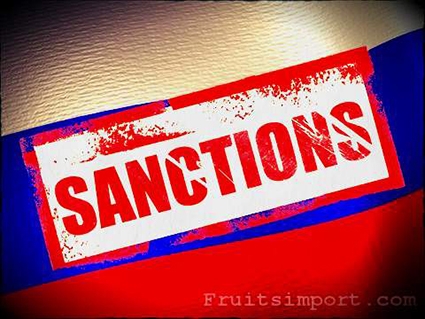Possible Russian Embargo – Fiasco in Economic Relations, or Political Trade?
Zurab Abashidze, the Georgian Prime Minister’s Special Envoy for Russian Relations, says Russia’s possible trade embargo is allegedly related to the decision made by Georgia last year referring to Georgia supporting the EU sanctions against Russia for annexing Crimea and occupying the eastern part of Ukraine.
“We have already commented on Georgia joining the EU sanctions against Russia… The sanctions’ duration and our participation in them renewed automatically upon expiration, without Georgia taking any new actions in this direction,” Abashidze said.
“It seems the Russian side is going to impose an embargo because of the decision made by Georgia last year. From my point of view, it would be the wrong thing to do. One of the tangible results of restoration of Georgia-Russia dialogue is the resumption of our trade-economic relations,” the Special Envoy emphasized.
It became known the last week that Russia’s Rospotrebnadzor (Consumer Rights Protection Service) has accused Georgian wine producers of constantly violating safety regulations and claims that the country’s monitoring agencies are not properly controlling production (see Page 15 of this week’s Georgia Today).
According to the agency, which is most of the times utilized as a politics-based system by Russia, 45 Georgian producers sent a total of 6.7 million liters of alcohol to Russia in 2015. They [the agency] say ten batches of the product (mainly “Old Kakheti” cognac, as well as “Kolkhida” and “Saperavi” wines) were declared as unable to meet the agency’s requirements and therefore denied entry into the Russian Market.
Analysis by Georgia Today’s Zviad Adzinbaia
Have Georgia’s dreams been fulfilled by exporting Georgian fruit and veg to Russia in exchange for risking Georgia’s sovereignty? It seems that Georgians have not yet learnt their (quite expensive) lessons from previous relations with Russia, as the country’s northern neighbor is well experienced in imposing political embargos on Georgia, as clearly revealed back in 2006. What comes next? Is this yet another demonstration of the failure of the Abashidze-Karasin format and GD’s Russian normalization politics?
In the 2012 and 2013 parliamentary and presidential elections Georgian Dream promised the public that they would restore and normalize relations with Russia, starting with some trade-economic aspects and leading to real issues, such as de-occupation. Instead, a number of negative expectations from the GD-opposed sides have occured. Now it is lucid that the Russian market will once again be closed to Georgian producers.
Former Minister of Culture and Monument Protection of Georgia, Nika Rurua, claims that Zurab Abashidze is a Soviet diplomat who does not believe in Georgia’s European and Euro-Atlantic Future. Can some conclusions be drawn from this point?
What should Georgia opt for instead? Would it not be more pragmatic for the government to raise some crucial issues, such as occupation, in international relations along with Ukraine? It seems that this obscurity of the government will lead the country most likely to abyss instead of the European Union and NATO, which they insist they are aspiring to.
Zviad Adzinbaia











